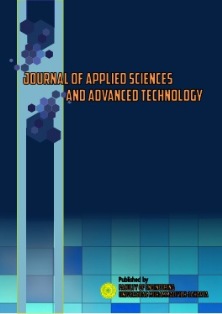Development of Educational Tourism Model Based on Local Competency at Sangkhom Islam Wittaya School Thailand
DOI:
https://doi.org/10.24853/jasat.7.1.15-24Keywords:
Community service, Development, Educational Tourism, Edu-tourism, Songkhla.Abstract
Sangkhom Islam Wittaya School is a privately owned Islamic school that provides standardized subjects and is overseen by the Songkhla Provincial Private Education Office. Despite being situated in a region renowned for its tourism potential, its allure remains untapped. This activity aimed to address the challenges partners overcome by developing educational approaches incorporating tourism principles. The activity commenced with a survey in 2023 and proceeded with coaching sessions from January to March 2024. The partners comprised six Sangkhom Islam Wittaya School administrators and numerous Primary and Junior High School students. This community service program employed a qualitative method integrating descriptive and explanatory approaches. Primary data collection involved conducting interviews, making observations, and organizing focus group discussions (FGDs). On the other hand, secondary data was obtained from reports, books, and other published materials. The observed tourist attractions encompassed floating markets, culinary establishments, souvenir stores, Buddhist temples and statues, hilltop museums, wayside businesses, and other similar attractions, all meticulously documented as recommended places to visit. The guided visit was divided into two days based on distance analysis. The authors suggested some places on the trip around. On the first day, students can visit Hat Yai Municipal Park, Khlong Hae Floating Market, and Kim Yong Market. On the second day, students explore Samila Beach, Songkhla Old Town, and the Folklore Museum. The findings of the partner satisfaction survey indicated that the partners expressed delight with the program implementation.Downloads
References
L. ram Choudhary and P. Srivastava, “Educational Tourism: a New Concept of Sustainable Development of Tourism,” Spec. Ugdym., vol. 1, no. 43, pp. 4684–4690, 2022.
M. Qadafi, “Pembelajaran Bahasa Inggris pada Anak di Sangkhom Islam Wittaya School saat Pandemi Covid-19,” J. Obs. J. Pendidik. Anak Usia Dini, vol. 5, no. 1, pp. 422–430, 2020, doi: 10.31004/obsesi.v5i1.591.
R. R. Bare, A. Mukmin, A. I. Kesuma, H. Akib, and ..., “Development of Edu-Tourism based for Local Competencies,” Ilkogr. Online-Elementary Educ. Online, vol. 20, no. 5, pp. 6299–6307, 2021, doi: 10.17051/ilkonline.2021.05.710.
K. A. Ekasani, N. K. A. W. Bhuanaputri, P. Yosephanny, and F. J. Alberta, “The Role of Educational Tourism for Indonesian Development,” J. Bus. Hosp. Tour., vol. 6, no. 2, pp. 170–176, 2020, doi: 10.22334/jbhost.v6i2.217.
W. Durongkaveroj, “Recent Developments in Basic Education in Thailand: Issues and Challenges,” Southeast Asian Econ., vol. 39, no. S, pp. S20–S33, 2022, doi: 10.1355/ae39-sc.
S. W. Paweenawat and L. Liao, “Educational assortative mating and income inequality in Thailand,” J. Demogr. Econ., vol. 89, no. 2, pp. 283–298, Jun. 2023, doi: 10.1017/dem.2022.9.
D. Lathapipat, “Inequalities in Educational Attainment,” in Education in Thailand, 2018, pp. 345–372.
F. Yang, R. Ayavoo, and N. Ab Aziz, “Exploring Students’ Push and Pull Motivations to Visit Rural Educational Tourism Sites in China,” Sustainability, vol. 15, no. 20, p. 14739, 2023, doi: 10.3390/su152014739.
A. C. Thoo, M. B. P. Lim, H. T. Huam, and Z. Sulaiman, “Increasing destination loyalty of international students towards Malaysian higher educational institutions,” Int. J. Eval. Res. Educ., vol. 11, no. 1, pp. 31–41, 2022, doi: 10.11591/ijere.v11i1.21619.
G. Yfantidou and D. Goulimaris, “The Exploitation of Edutourism in Educational Society: A Learning Experience Necessity through Physical Activity and Recreation,” Int. Sci. J. Kinesiol., vol. 1, no. 2018, pp. 1–15, 2018.
A. Pratiwi and M. Mutiarani, “Implementing Outdoor Learning Activity on Students’ Vocabulary Mastery,” Scr. English Dep. J., vol. 9, no. 2, pp. 126–136, 2022, doi: 10.37729/scripta.v9i2.2214.
A. I. Sulaiman, C. Chusmeru, and B. Kuncoro, “The Educational Tourism (Edutourism) Development Through Community Empowerment Based on Local Wisdom and Food Security,” Int. Educ. Res., vol. 2, no. 3, p. p1, 2019, doi: 10.30560/ier.v2n3p1.
A. Ghorbani, A. Danaei, S. M. Zargar, and H. Hematian, “Designing of smart tourism organization (STO) for tourism management: A case study of tourism organizations of South Khorasan province, Iran,” Heliyon, vol. 5, no. 6, p. e01850, 2019, doi: 10.1016/j.heliyon.2019.e01850.
N. T. Franco, E. Onofre Sánchez, and E. R. Ahumada López, “Educational tourism. A theoretical review of the phenomenon Turismo,” J. Adm. Sci. Biannu. Publ., vol. 4, no. 7, pp. 26–31, 2022, doi: 10.29057/jas.v4i7.8926.
I. Novarlia, “Tourist Attraction, Motivation, and Prices Influence on Visitors’ Decision to Visit the Cikandung Water Sources Tourism Object,” Budapest Int. Res. Critics Institute-Journal, vol. 5, no. 3, pp. 25400–25409, 2022, doi: 10.33258/birci.v5i3.6586.
I. M. Suradnya, “Pengembangan Kurikulum Pendidikan dan Pelatihan Kepariwisataan Berkelanjutan,” J. Ilmu Pendidik., vol. 16, no. 3, p. 162, 2020, doi: 10.17977/jip.v16i3.2569.
I. Harazneh, R. M. Al-Tall, M. F. Al-Zyoud, and A. M. Abubakar, “Motivational factors for educational tourism: Marketing insights,” Manag. Mark., vol. 13, no. 1, pp. 796–811, 2018, doi: 10.2478/mmcks-2018-0006.
H. K. N. Bama and E. Abrahams, “Emerging from the COVID-19 Pandemic: Challenges and Prospects for Edutourism Demand in South Africa,” African J. Hosp. Tour. Leis., vol. 12, no. 3, pp. 883–898, 2023, doi: 10.46222/ajhtl.19770720.405.
T. Juwita, E. Novianti, R. Tahir, and A. Nugraha, “Pengembangan Model Wisata Edukasi Di Museum,” J. Indones. Tour. Hosp. Recreat., vol. 3, no. 1, pp. 8–17, 2020, doi: 10.17509/jithor.v3i1.21488.
H. Prasetyo and D. Nararais, “Urgensi Destinasi Wisata Edukasi Dalam Mendukung Pariwisata Berkelanjutan Di Indonesia,” Kepariwisataan J. Ilm., vol. 17, no. 2, pp. 135–143, 2023, doi: 10.47256/kji.v17i2.209.
C. L. Lamb, “Let’s Take This Outside : Utilizing Outdoor Classrooms as a Response to The Coronavirus-19 Pandemic,” University of Northern Colorado, 2023.
Downloads
Published
Issue
Section
License
COPYRIGHT POLICY
The author(s) of an article published in the Journal of Applied Sciences and Advanced Technology (JASAT) retains ownership of the intellectual property rights in work (s).
PUBLISHING RIGHTS
The author(s) of an article published in the Journal of Applied Sciences and Advanced Technology (JASAT) have unrestricted publication rights. The authors give the Journal of Applied Sciences and Advanced Technology (JASAT) the right to publish the article and designate the Faculty of Engineering Universitas Muhammadiyah Jakarta Publishing as the original publisher of the article.
LICENSING POLICY
JASAT is an open-access journal that follows the Creative Commons Non-Commercial 4.0 International License (CC BY-NC 4.0), which states that:

Under this license, the reusers must give appropriate credit, provide a link to the license, and indicate if changes were made. Users may do so in any reasonable manner, but not in any way that suggests the licensor endorses users or their use.
Please take the time to read the whole license agreement (https://creativecommons.org/licenses/by-nc/4.0/). As long as reusers follow the license conditions, the owner cannot withdraw these freedoms. The following components are included under this license:
 Attribution: Users must provide appropriate attribution, including a link to the license, and indicate whether or not they made any modifications. Users are free to do so reasonably, but not in a manner that indicates the licensee approves of their usage.
Attribution: Users must provide appropriate attribution, including a link to the license, and indicate whether or not they made any modifications. Users are free to do so reasonably, but not in a manner that indicates the licensee approves of their usage.
 NonCommercial: Users may not use the material for commercial purposes.
NonCommercial: Users may not use the material for commercial purposes.












_2.png)


1.png)

2.png)
